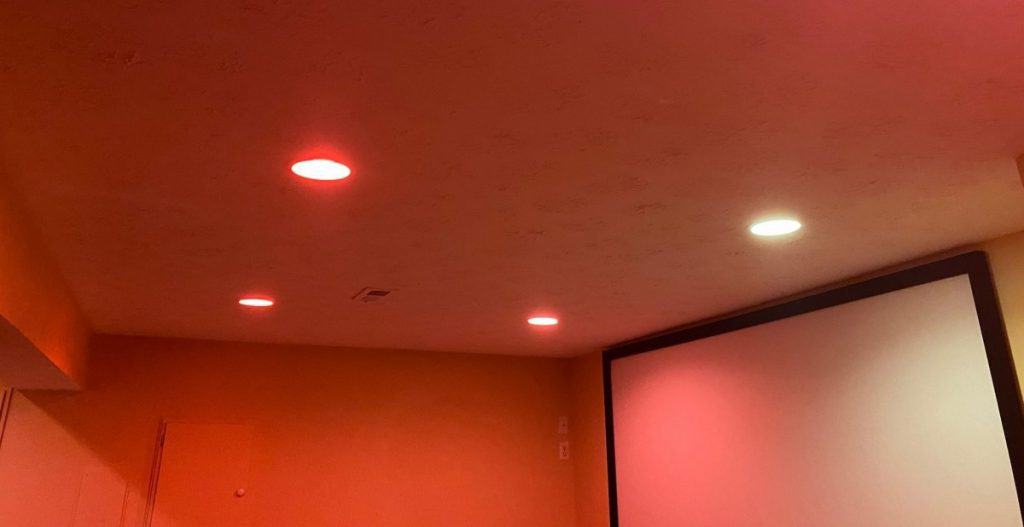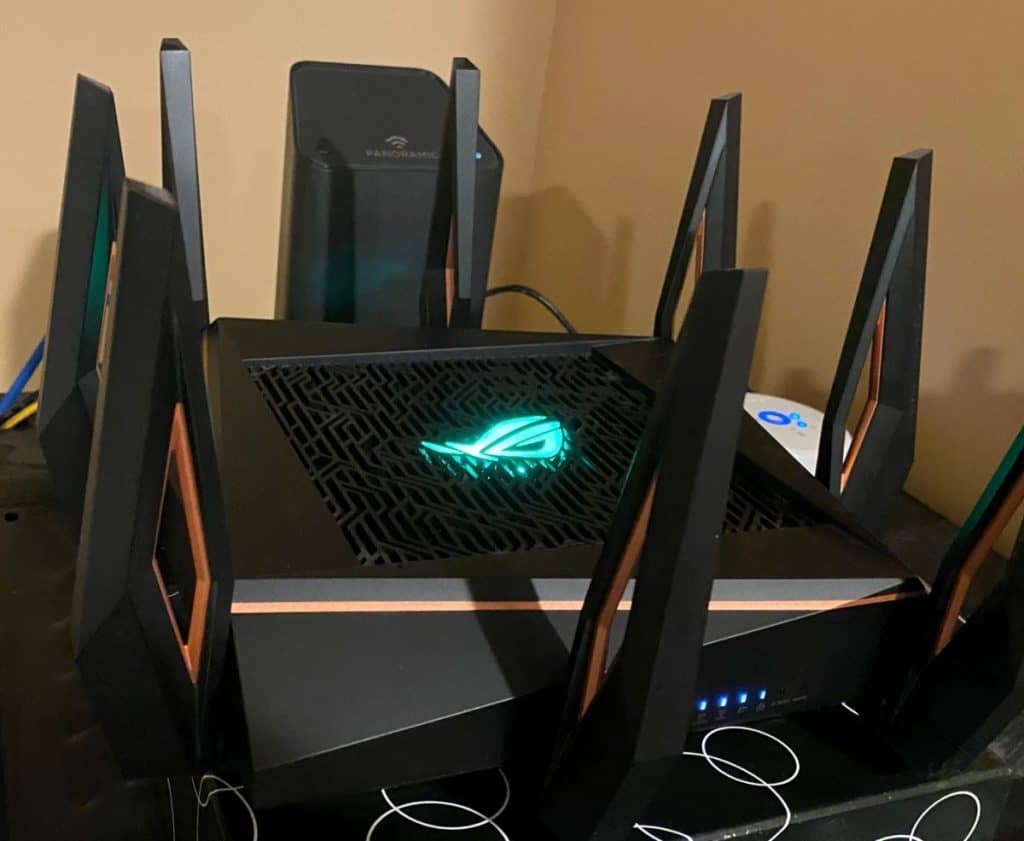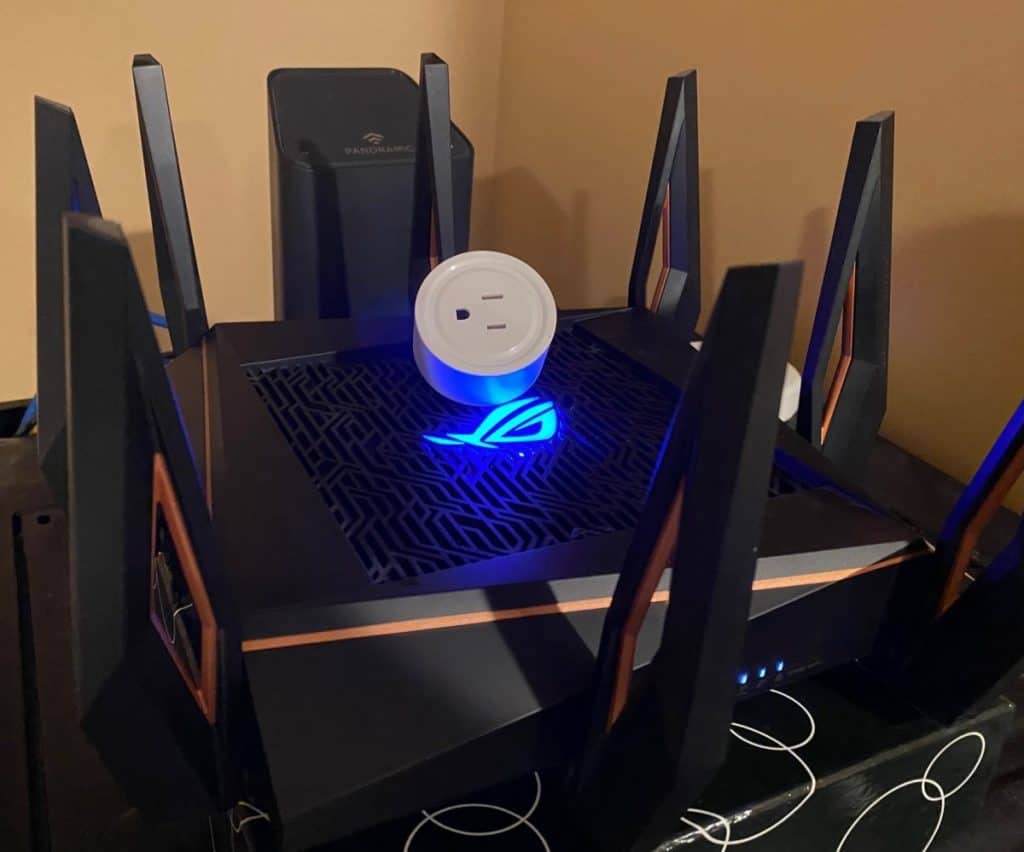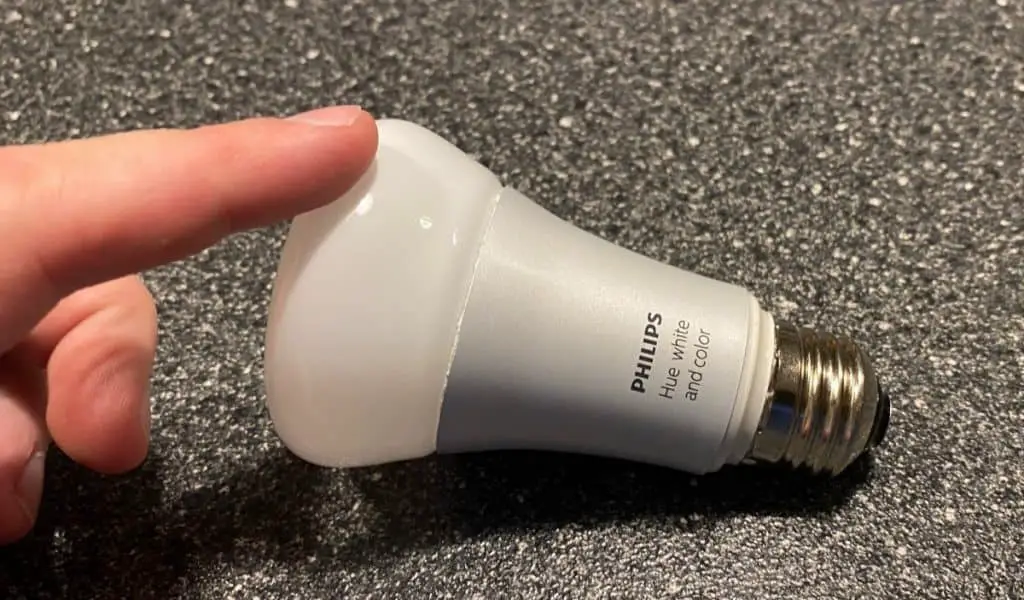Smart devices like lights can be a convenient and useful addition to your household. But, as with any electronic device, it can be difficult to troubleshoot the many potential causes when a problem arises, such as the lights turning off by themselves. What could the cause be, and how can you rule out potential culprits?
Your smart lights turn off by themselves due to various reasons, including problems with the signal, a damaged cord or wall socket, automation settings, outdated software, or faulty hardware. If only one light is turning off, it’s most likely a hardware problem, such as a bulb that has burned out.
The rest of this article will go into greater detail into the common causes for dysfunctional smart lights. If you need help troubleshooting why your lights are turning off by themselves, read on for more information.

Internet Connection Issues
A common source of problems in all kinds of smart devices is connectivity. If your device has a weak connection to the internet or no connection at all, it may behave oddly or lose some functionality.
There are different kinds of wifi issues, but the effect is often the same. This can make it difficult to diagnose where the problem lies.
Problem With the Wifi
If the issue is originating from your wifi router, the easiest way to tell is by checking other wifi-connected devices such as the computer or your phone.
If other devices seem to be experiencing connection problems too, then the source is your internet. You will need to resolve this issue for your smart lights to work properly.

Poor Signal Strength
If your other devices aren’t having issues connecting to the internet, the problem may be with the smart lights’ signal strength.
The best way to test for and fix this is to try moving the wifi router closer to the lights or their signal receiver. You can also try moving the lights themselves if possible, particularly with portable lights that plug into electrical sockets.
Physical Connection Issues
Your smart lights need a stable connection to the internet, but they also need a stable connection to a power source.
If your lights are wireless, the solution is as simple as checking and replacing the batteries. Otherwise, you will have to check the device’s electrical wiring. This type of problem can also be a fire hazard, even when it’s something as small as a damaged power cord. So if you suspect this is what you’re experiencing, do not ignore it.
Faulty Wiring
If there’s any damage to the wiring connecting your smart lights to their power source, this can cause them to turn off at seemingly random times.
Inspect the cord running from an affected light for any noticeable damage. However, the problem could be with the wiring in your home rather than the light itself. You may be able to repair a slightly damaged cord on your own, but faulty wiring in your home will require professional assistance.
If you think there is a problem with the cord connected to your smart light but don’t know how to fix it, try contacting your brand’s customer support. Find out whether they can send someone to repair it for you. If it’s a more large-scale problem with your home’s wiring rather than the light, you will need the help of an electrician.
Faulty Electrical Outlet
As with faulty wiring, a bad wall socket will likely impact anything plugged into it. If you notice lights flickering or turning off in a specific area of your home, especially a specific wall socket, you should try moving them to see if this helps.
If you locate a faulty wall socket, unplug everything from it, not just your lights. Even if it doesn’t seem to be impacting other devices, leaving things plugged into a bad electrical outlet can be a fire hazard. You shouldn’t use the outlet until you’ve had it looked at by an electrician.

Software Issues
If you’ve ruled out connection issues, this means the issue is either a digital or physical problem with the lights. The most common software problems pertain to settings and updates, both of which are typically quite easy to fix.
Smart Device Settings
If you have smart devices, you probably have some kind of central “hub” device or app that controls them. If applicable, it’s worth checking your lights’ settings to see whether there’s an automation setting causing them to turn off under certain conditions.
Outdated Firmware
Firmware is essentially the software that allows your smart lights to operate and be controlled. Outdated firmware can lead to issues with functionality.
Depending on your devices, you may have the option to update the firmware. This will most likely be found under the aforementioned “settings” of your device or control hub.
If you have smart lights that don’t have an option for updates, you will need to buy new ones or contact your brand’s customer support.
Hardware Issues
Your smart lights could be turning off due to any number of problems with their hardware. Additionally, it can be hard to troubleshoot specific sources of hardware-related issues, as any damaged component can lead to reduced functionality for an entire device.
In most cases, if your smart light has damaged hardware, you will need to replace it. The good news is that faulty hardware in a single light shouldn’t hurt the rest of your lights or any other smart devices in your home. Hence, you will only need to identify and replace damaged lights.

Old Light Bulb
While most issues relating to damaged or outdated hardware are difficult to diagnose and fix, a burned-out light bulb is one thing you can fix on your own with ease.
Assuming your smart light allows for replacing bulbs, you should be able to unscrew an old light bulb from its place with relative ease. All you have to do is identify the type and size of the light bulb, then buy a replacement.
If replacing the light bulb does not fix your smart light, and you are positive the new one isn’t damaged, the problem almost certainly lies somewhere else. If you’re positive it’s a hardware issue but replacing the bulb doesn’t work, you will likely need to buy a replacement smart light.
Conclusion
There are many potential causes for your smart lights turning off by themselves. This can make identifying the source difficult.
Still, it’s important to do thorough troubleshooting to locate the source of the problem, especially because some unaddressed issues can also become fire hazards.

